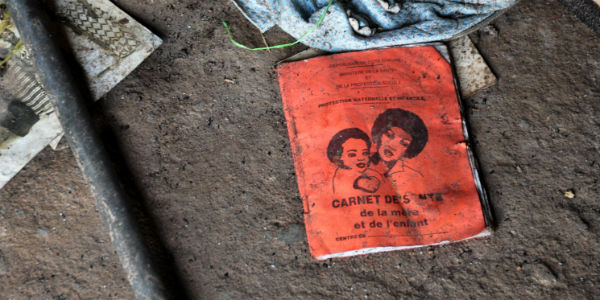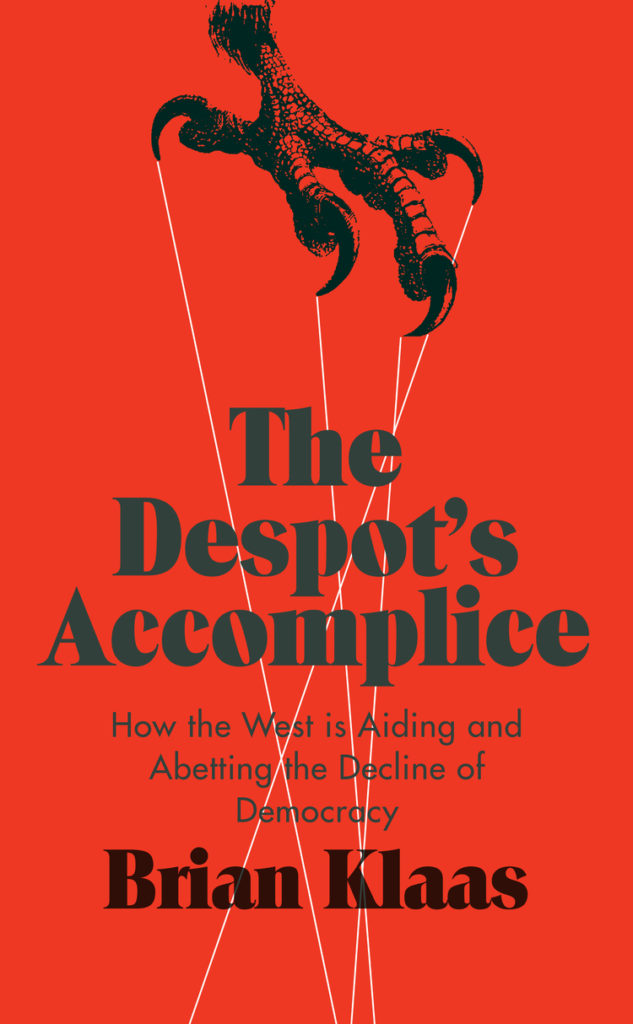It’s distasteful – but giving a despot an easy way out can stop further bloodshed
In this exclusive extract from Brian Klaas’ new book, The Despot’s Accomplice, he argues that – however distasteful it may be to the principle of justice – offering despots a way out can prevent further bloodshed. This is because they frequently know they have nothing to lose by fighting to the death. Furthermore, research shows that countries which punish ex-leaders are more likely to fail to transition to democracy successfully.

A health record book left in the Quartier Guere district of Duekoue, Cote d’Ivoire, February 2011. Local people, most of whom were supporters of the incumbent president Laurent Gbagbo, were driven out by forces loyal to Alassane Ouattara. Photo: Michael Fleshman via a CC-BY-SA 2.0 licence
Principle 5: Give despots a way out
Before widespread fighting broke out in Côte d’Ivoire, President Obama reportedly called the embattled incumbent, Laurent Gbagbo, and offered him asylum in the United States. Obama even went one step further, promising that he would arrange a faculty position for Gbagbo as a visiting scholar at Boston University. Gbagbo was a history professor before he entered politics, and the idea was simple: tempt him with a cushy job and a guarantee of safety so that he wouldn’t drive his country into a bloody, costly, destabilising conflict. On that occasion, it didn’t work. Gbagbo decided to stay and fight, and while it didn’t cost him his life, it did cost him his freedom. But he could just as easily have been a faculty member gallivanting around Boston in tweed, teaching African history to rich kids churned out of East Coast prep schools.
The failure to remove Gbagbo with an enticing job offer does not mean that such overtures are a bad idea. Western leaders hoping to make the world more democratic should extend a set of “golden handcuffs” to leaders, conditioned on their willingness to peacefully transfer power to a successor, ideally after an election.
What happens to a leader after they leave power depends a lot on where they ruled. Since 1989, not a single leader has been imprisoned, killed, or forced into exile in Western Europe, Japan, South Korea, the United States, Canada, New Zealand or Australia. Not only that, but there is a clear path to riches; leave power, and go off and make your millions on the speaking circuit. Bill and Hillary Clinton, for example, earned $140 million giving speeches around the United States from 2007 to 2015 alone. Leaving power didn’t exactly doom their prospects for future prosperity.
For leaders in the rest of the world, the risks are different. Leaving office is perilous. In non-Western countries, 6.5 per cent of rulers leaving power since 1989 have found a new home in a jail cell, and 2 per cent have been killed. In Sub-Saharan Africa, the odds are even worse. Since the end of the Cold War, 23 per cent of deposed African rulers were forced into exile; around 8 per cent were jailed; and 5 per cent were killed. Put differently, more than one in three Sub-Saharan leaders can expect not to be allowed to return home after leaving office, because they are killed, jailed, or banished from the country they formerly ruled.
Let’s think about that. For an African leader, losing power is like playing Russian roulette with two loaded chambers and four empty ones. If they happen to pull the trigger on the first or second chamber in the barrel, they will either never go home, or lose their freedom, or even die. That credible risk creates a strong incentive for leaders to cling to power rather than taking any chances. Ruthless repression becomes rational. Election rigging seems like the most obvious thing in the world. Mitt Romney might have behaved a bit differently if losing the presidential election meant he could be dragged through the streets of Salt Lake City by an angry mob or sent to rot in a dangerous prison cell.
In short, unless a more enticing incentive comes along to break that line of thinking, we shouldn’t be surprised that rulers like Robert Mugabe of Zimbabwe (in power since 1987) or José Eduardo dos Santos of Angola (in power since 1979) are willing to do just about anything to avoid stepping down. To avoid the risk of losing power, they badly overstay their welcome. Some 83 per cent of Zimbabweans and 85 per cent of Angolans have never even been alive to see a different leader in power; their despots are all they know of what politics entails. The same is true for more than half the population in eight other African countries.
Third, recent scholarship has shown that countries that punish their leaders after they step down are more likely to succumb to a failed transition to democracy, a reversal of fortunes that ends right back at square one: with an authoritarian despot. Dictators, despots, and counterfeit democrats often abuse their office, steal from public coffers, and violate human rights.They often deserve to be punished. But, although it pains me to say it (and this is the cue for liberal idealists to roll their eyes), sometimes, punishing a leader is the worse of two evils. Just as it may arguably be justified to shoot down a civilian airliner if it’s about to crash into a stadium of 50,000 people, giving bad leaders a cushier-than-they-deserve treatment to entice them to relinquish power is often the less bad option, ensuring that a grim situation doesn’t morph into a grisly one.
This is an extract from Brian Klaas’ The Despot’s Accomplice: How The West is Aiding and Abetting the Decline of Democracy, published by Hurst. It represents the views of the author and not those of Democratic Audit.
Brian Klaas is an LSE Fellow in Comparative Politics.





 Democratic Audit's core funding is provided by the Joseph Rowntree Charitable Trust. Additional funding is provided by the London School of Economics.
Democratic Audit's core funding is provided by the Joseph Rowntree Charitable Trust. Additional funding is provided by the London School of Economics.
It’s distasteful – but giving a despot an easy way out can stop further bloodshed https://t.co/1gTuOIalnY
It’s distasteful – but giving a despot an easy way out can stop further bloodshed https://t.co/hgEDj1Ow7H
It’s distasteful – but giving a despot an easy way out can stop further bloodshed https://t.co/wlMRD4MZ8H
It’s distasteful – but giving a despot an easy way out can stop further bloodshed https://t.co/wlMRD54A0f https://t.co/8A7Z0ZBmtM